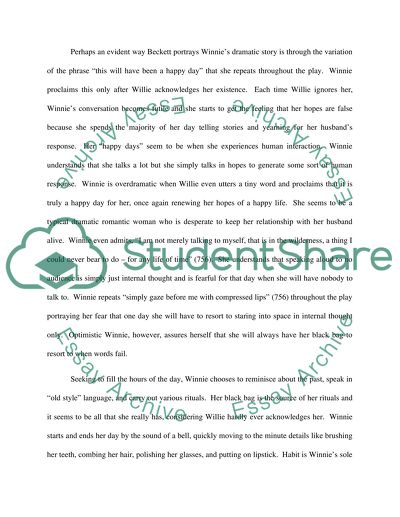Cite this document
(“Samuel Beckett's Happy Days Essay Example | Topics and Well Written Essays - 2750 words”, n.d.)
Retrieved from https://studentshare.org/literature/1396950-samuel-becketts-happy-days
Retrieved from https://studentshare.org/literature/1396950-samuel-becketts-happy-days
(Samuel Beckett'S Happy Days Essay Example | Topics and Well Written Essays - 2750 Words)
https://studentshare.org/literature/1396950-samuel-becketts-happy-days.
https://studentshare.org/literature/1396950-samuel-becketts-happy-days.
“Samuel Beckett'S Happy Days Essay Example | Topics and Well Written Essays - 2750 Words”, n.d. https://studentshare.org/literature/1396950-samuel-becketts-happy-days.


